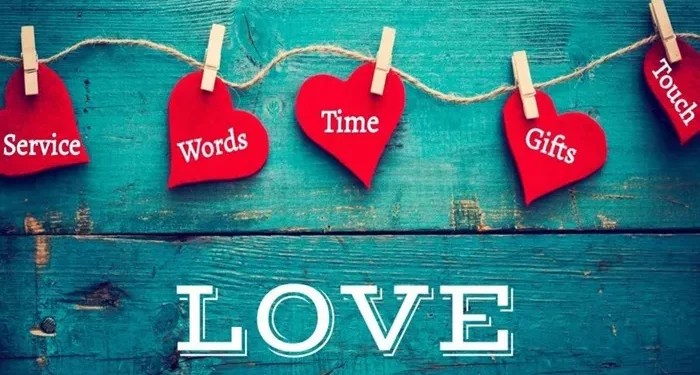Love is a universal emotion, but people express and receive it differently. The idea of love languages comes from Dr. Gary Chapman, a relationship counselor who noticed patterns in how couples communicate affection. He identified five primary ways people give and receive love, calling them “love languages.” Knowing these languages helps strengthen relationships by ensuring both partners feel valued.
Many conflicts in relationships arise from mismatched love languages. One partner might express love through gifts, while the other craves quality time. Without understanding these differences, feelings can go unnoticed. Learning about love languages bridges this gap, making love more intentional and fulfilling.
The First Love Language: Words of Affirmation
Words hold immense power. For some people, verbal expressions of love mean the most. Compliments, encouragement, and kind words reassure them of their partner’s feelings. Simple phrases like “I appreciate you” or “You did a great job” can make a significant impact.
However, negative words can also hurt deeply. Criticism or harsh tones may leave lasting wounds. People with this love language thrive on positivity. Written notes, heartfelt texts, or spoken praise strengthen their emotional connection. If your partner values words of affirmation, make an effort to vocalize your love regularly.
The Second Love Language: Acts of Service
Actions speak louder than words for some individuals. When a partner takes initiative to help—like cooking a meal, running errands, or fixing something—it shows care. These gestures demonstrate love through effort and thoughtfulness.
Laziness or broken promises can feel like rejection to someone who values acts of service. Failing to follow through on tasks may be interpreted as indifference. To nurture this love language, pay attention to your partner’s needs and take practical steps to support them. Small, consistent efforts often mean more than grand, occasional displays.
The Third Love Language: Receiving Gifts
Gift-giving is more than materialism—it’s a symbol of thought and affection. For some, a carefully chosen present represents love. The gift itself doesn’t need to be expensive; it’s the meaning behind it that matters. A handwritten letter, a favorite snack, or a small souvenir can convey deep emotion.
Forgetting special occasions or giving thoughtless gifts can cause hurt. People who cherish this love language see gifts as tangible reminders of love. The key is intentionality. Pay attention to what your partner likes, and surprise them with meaningful tokens of appreciation.
The Fourth Love Language: Quality Time
Undivided attention is priceless for those whose primary love language is quality time. Distractions, canceled plans, or half-hearted presence can make them feel unimportant. They crave meaningful moments—whether it’s a deep conversation, a shared hobby, or simply sitting together.
Quality time isn’t about quantity. A short but focused interaction can be more valuable than hours of passive coexistence. Put away phones, listen actively, and create memories together. This love language thrives on presence and engagement.
The Fifth Love Language: Physical Touch
Physical affection is a powerful communicator of love. Holding hands, hugs, kisses, or a reassuring touch can make some people feel deeply connected. For them, physical closeness fosters security and emotional bonding.
Neglecting touch or being physically distant can create feelings of isolation. Even small gestures, like a pat on the back or sitting close, can reinforce love. If your partner values physical touch, prioritize affectionate contact in daily interactions.
Discovering Your Love Language
Understanding your own love language is just as important as recognizing your partner’s. Reflect on what makes you feel most loved. Do you light up when someone praises you? Do you feel cherished when your partner helps with chores? Identifying your preferences helps you communicate your needs better.
Couples can take quizzes or discuss their love languages to improve their relationship. Open conversations prevent misunderstandings and foster mutual appreciation. When both partners actively speak each other’s love language, the relationship flourishes.
Applying Love Languages in Relationships
Knowing the love languages is only the first step—applying them consistently is what brings change. Start by observing your partner’s reactions. Notice what gestures make them happiest. Then, make a conscious effort to express love in their preferred language.
For example, if your partner values acts of service, help with household tasks without being asked. If they cherish words of affirmation, leave them an encouraging note. Small, consistent efforts build a stronger emotional connection over time.
Common Missteps and How to Avoid Them
A common mistake is assuming your partner shares your love language. You might express love through gifts, while they crave quality time. This mismatch can lead to frustration. Avoid this by discussing love languages openly and adapting your expressions of love accordingly.
Another error is neglecting love languages during conflicts. Stressful times are when reassurance is most needed. Even during disagreements, try to speak your partner’s love language—whether it’s a comforting touch or a sincere apology.
The Impact of Love Languages Beyond Romantic Relationships
Love languages aren’t limited to romantic partnerships. They apply to friendships, family bonds, and even workplace relationships. A parent might show love through acts of service, while a child prefers quality time. Recognizing these differences improves all types of connections.
In friendships, knowing a friend’s love language helps maintain strong ties. Some friends appreciate heartfelt conversations, while others feel valued through small favors or gifts. Adapting to these preferences deepens relationships.
Conclusion
Love languages provide a framework for more meaningful connections. By understanding how you and others give and receive love, you can build stronger, more fulfilling relationships. The key is awareness, effort, and consistency.
Start today by identifying your love language and asking your loved ones about theirs. Practice speaking their language, and observe the positive changes in your relationships. Love is universal, but expressing it effectively requires intention and understanding.
Related topics:
What Are The 5 Love Languages?
What are The 7 Types Of Love Languages?






















